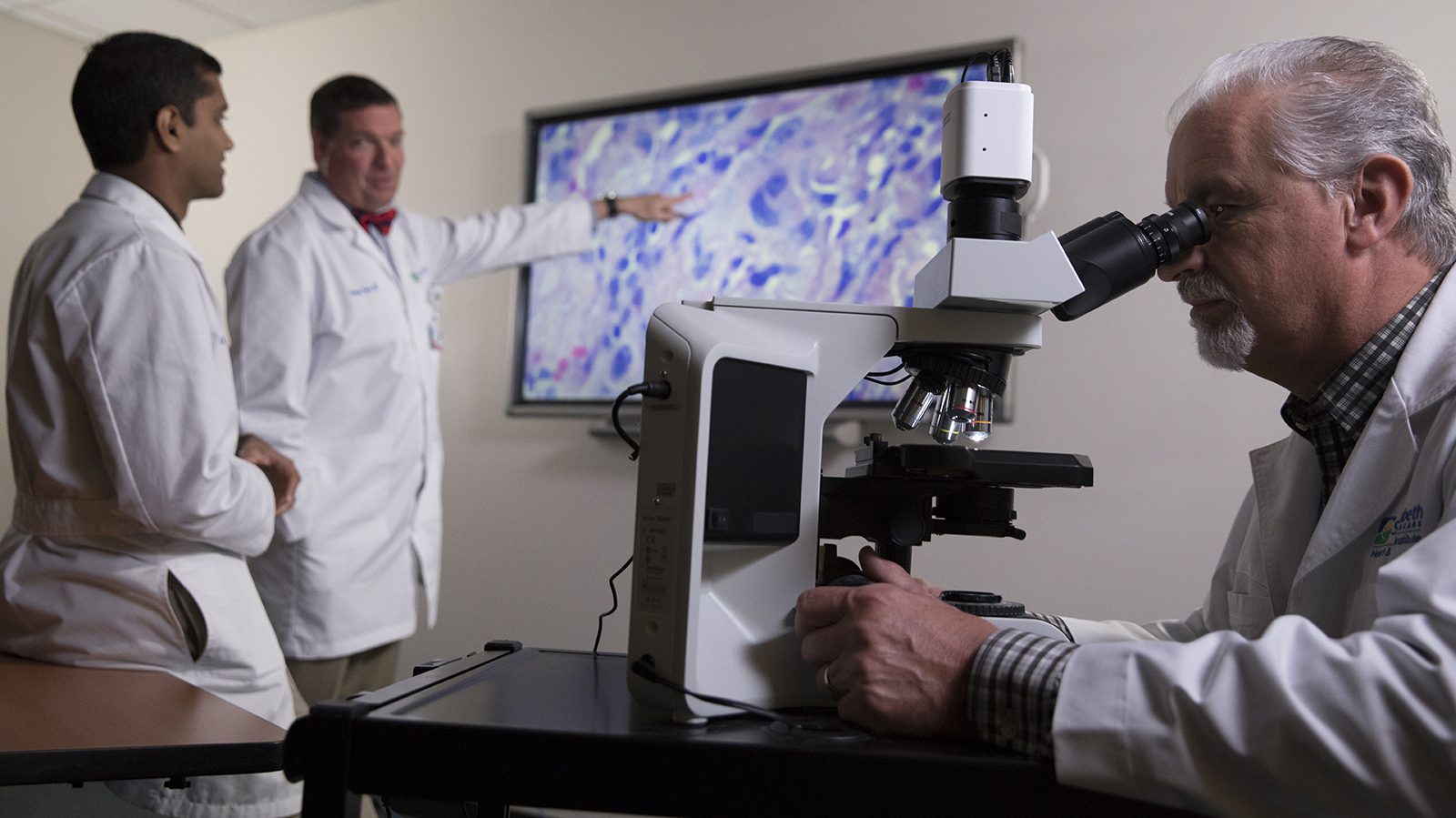Gallbladder Cancer
Your gallbladder is a small organ on the right side of your abdomen that stores bile from your liver. Most gallbladder cancer begins in the glandular cells that line your gallbladder. Gallbladder cancer that begins in this type of cell is called adenocarcinoma.
About Gallbladder Cancer
Risks Factors for Gallbladder Cancer
A history of gallstones increases your risk for gallbladder cancer, but most people that get gallstones do not develop gallbladder cancer.
Other risk factors associated with gallbladder cancer include:
- Age.
- A personal or family history of gallstones.
- Being of American Indian, Alaska Native, or African American descent.
- Being female.
- Diet.
- Environmental exposures.
- Gallbladder infections and inflammation.
- Obesity.

Make an appointment
For more information, please contact your oncologist or the Cancer Care Center at (859) 301-4000.
Causes of Gallbladder Cancer
The cause of gallbladder cancer is unknown, but if you have any risk factors, the possibility of you developing gallbladder cancer increases.
Symptoms of Gallbladder Cancer
There are often no signs or symptoms of gallbladder cancer. If symptoms appear, they include:
- Abdominal bloating.
- Abdominal pain.
- Fever.
- Nausea.
- Unexplained weight loss.
- Yellow discoloration of your skin or whites of eyes.
Diagnosing Gallbladder Cancer
If your doctor suspects that you have gallbladder cancer, they may run tests to determine the stage of cancer to develop the best treatment plan. These tests include:
- Blood tests to check genetic makeup and blood markers.
- Bile duct tests.
- Biopsy.
- CT scan.
- Exploratory surgery.
- PET/CT scan.
- MRI.
- Ultrasound.
If you’ve been diagnosed with gallbladder cancer, we can provide a second opinion and present treatment options.
Treating Gallbladder Cancer
At St. Elizabeth Healthcare, we believe in caring for you, not just treating your cancer. Our holistic approach means we combine cancer treatment with working to minimize side effects and help you manage them. Our goal is to make you as comfortable as possible while we use innovative approaches to treat your cancer. Depending on the stage of your cancer and whether it has spread, your treatment may include:
Preventing Gallbladder Cancer
Lifestyle changes that can reduce your risk of gallbladder cancer include:
Your Cancer Care Team
The team includes medical oncologists specializing in immunotherapy and precision medicine, surgical oncologists, radiation oncologists, interventional radiologists, thoracic surgeons, pain management specialists, genetic counselors, pathologists, nutritionists, pharmacists, nurses and support staff. They work together to create a treatment plan that’s just right for you.


